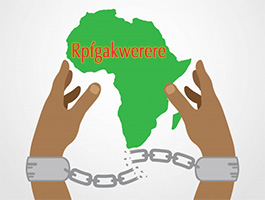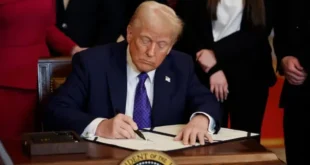Writing in The Times recently, noted British print journalist Michela Wrong referred to Rwandan president Paul Kagame as “a micro-managing autocrat”.
If you have read Wrong, you will agree with me that she has what most journalists lack: The willingness to choose truth over balance.
Most people argue that Kagame is one of Africa’s most economically progressive heads of state today. He came into office at Rwanda’s darkest hour; just when the country was putting its pieces together after the horrific 1994 genocide and turned Kigali into “Africa’s Singapore”.
That argument is ridiculous. You see, 36 per cent of Rwanda’s population is undernourished and 37 per cent of children there are experiencing stunted growth. In short, Rwanda is still poor, definitely not as poor as it was 10 years ago, but the economy is still struggling nonetheless. The country’s debt is equivalent to 73 per cent of its gross domestic product.
Most contemporary autocrats use constitutional and electoral coups as a way of self-preservation. Across the border, DRC’s Felix Tshisekedi is complaining that Kagame is sponsoring M23, a rebel group that is causing Tshisekedi’s government problems.
If African political history teaches us nothing else, it reminds us that we should not accept romanticised nationalism of any political leader without first giving it a thorough kicking.
The British government made a shocking, yet unsurprising announcement in April that it had entered into an agreement with Kagame’s government to deport tens of thousands of asylum seekers to Rwanda. The European Court of Human Rights issued an injunction that stopped the first charter flight from taking off.
By accepting to aid Britain in its racist project of oppressing migrants by allowing ethnicity and nationality to determine who is worthy of human generosity, Kagame has come out as a benevolent imperial agent.
It is strange that a man who was raised in a refugee camp can fail to appreciate the amount of havoc collective dehumanisation can wreck on the mind of an asylum seeker.
The Russia-Ukraine war that started on February 24 created the biggest humanitarian crisis in Europe since the turn of the century. Some 7.6 million people have so far fled Ukraine to neighbouring European countries. While white asylum seekers from Ukraine have been received warmly in Europe, their black counterparts have been denied basic human amenities such as shelter.
The West likes to encourage the rest of the world, particularly Africa, to uphold the rule of law and respect human rights, which is, although sometimes paternalistic, a good thing. However, doing the same on its own soil is where it draws the line. Such are the type of friends that Kagame, like most of his peers in the continent, prefers to keep.
-Mr Ouma is a freelance writer.
gervasjohn97@gmail.com
 Africa Just another WordPress site
Africa Just another WordPress site


